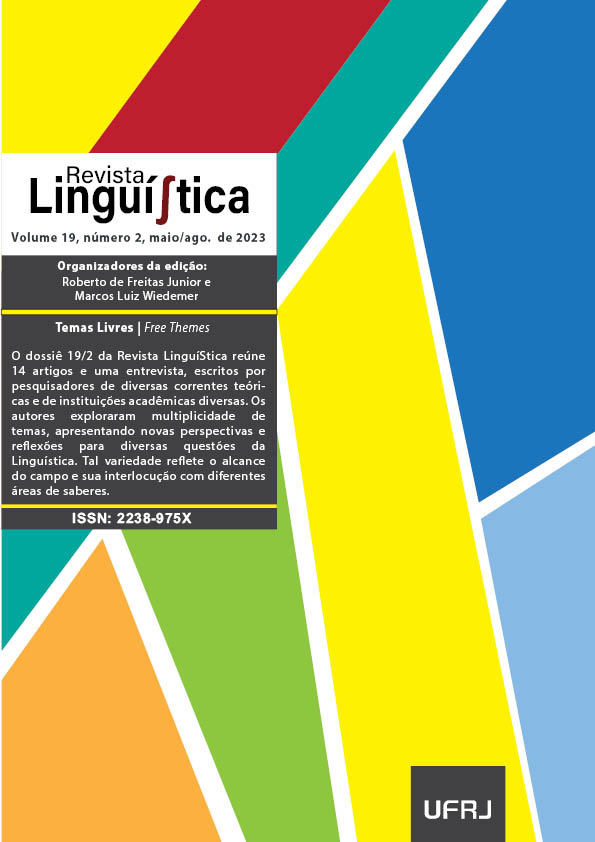The [n + a/eria] construction in Brazilian Portuguese according to Cognitive Gramma
DOI:
https://doi.org/10.31513/linguistica.2023.v19n2a61441Keywords:
léxico, morfologia, semântica, gramática cognitiva, linguística cognitivaAbstract
From a usage-based model, Cognitive Grammar, this article aims to describe and explain the formation of words such as “açaiteria”, “esmalteria” and “hamburgueria”, used to designate commercial establishments in Brazilian Portuguese (BP). The model predicts that word acquisition by native speakers involves grasping the schemas behind words, allowing for both the identification of other words that share the same schema and the creative use of the schema. Thus, the schema at issue appears to be [N + a/eria], and our working hypotheses are that (i) this schema was gleaned from older words in the language, such as “padaria”, “drogaria” and “lavanderia”, and (ii) the formation of words like “açaiteria”, “esmalteria” and “hamburgueria” can be considered evidence of the schema’s productivity. We adopt Cognitive Grammar (CG) for this is the model of Cognitive Linguistics that most extensively addresses the relationships between lexicon and grammar. Our conclusion is that the schema [N + a/eria] is productive in BP, which means, according to CG, a usage-based model, that such a schema is a template.
Downloads
Downloads
Published
Issue
Section
License
Copyright (c) 2024 Revista Linguí∫tica

This work is licensed under a Creative Commons Attribution-NonCommercial 4.0 International License.
Authors who publish in the Revista Linguí∫tica agree with the following terms:
The authors maintain their rights, ceding to the journal the right to first publication of the article, simultaneously submitted to a Creative Commons license permitting the sharing with third-parties of published content as long as it mentions the author and its first publication in the Revista Linguí∫tica.
Authors may enter into additional agreements for the non-exclusive distribution of their published work (for example, posting in online institutional or non-profit repositories, or book chapters) so long as they acknowledge its initial publication in the Revista Linguí∫tica.

The journal Revista Linguí∫tica is published by the Post-Graduate program in Linguistics of UFRJ and employs a Creative Commons - Attribution-NonCommercial 4.0 International (CC-BY-NC).









